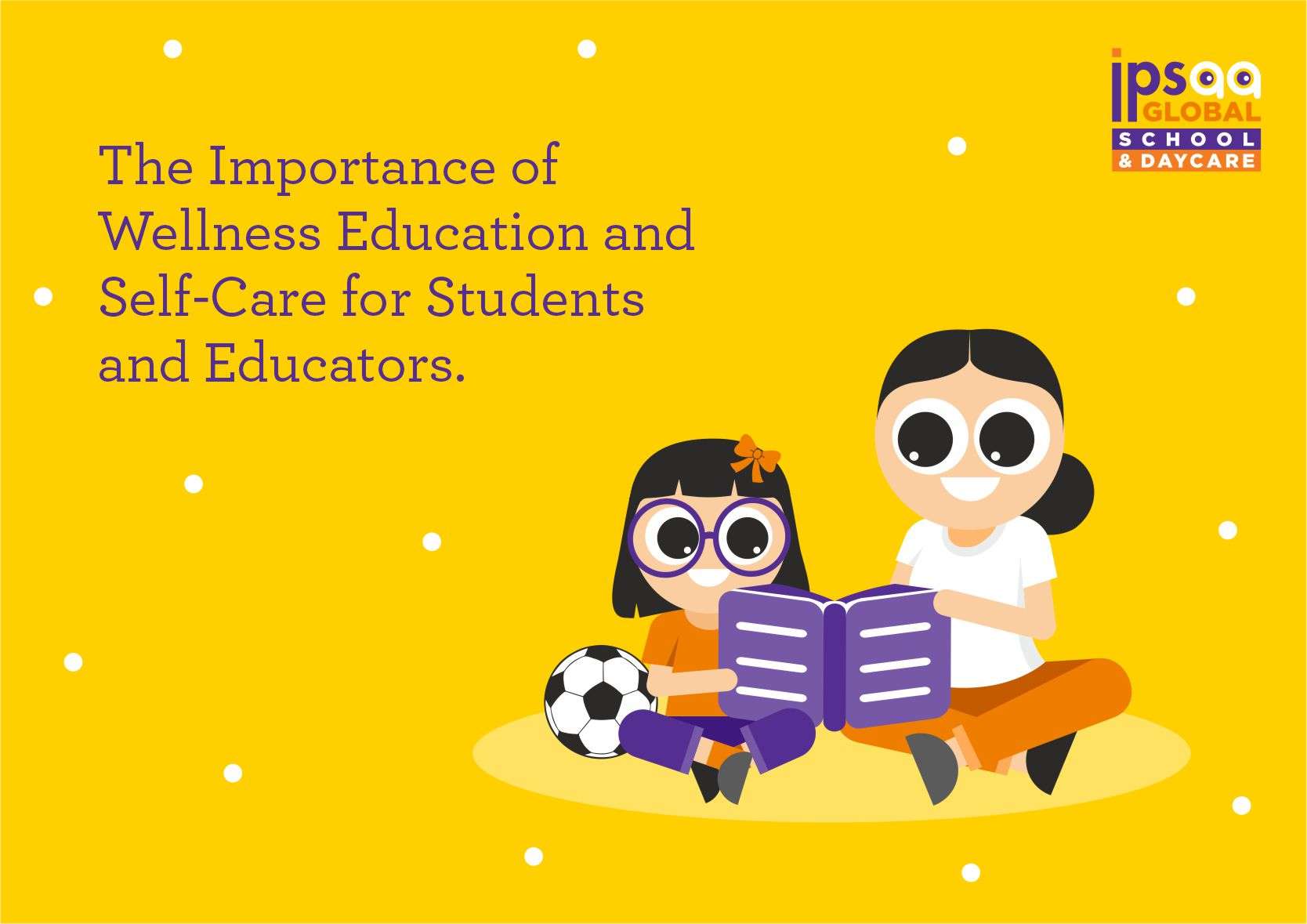Step into the vibrant world of education, where the minds of tomorrow are nurtured and futures are shaped. In this fast-paced and demanding realm, where knowledge reigns supreme, an often overlooked secret to unlocking success lies in the priority we place on wellness education and self-care. It’s not just about acing exams or meeting deadlines; it’s about creating a positive learning environment that fuels the spirit, ignites the mind, and fosters academic triumph. In this blog, we embark on a journey to unravel the significance of wellness education and self-care, unveiling their hidden benefits and equipping schools with practical strategies to implement them effectively. So, let’s delve into this transformative realm and discover the power that lies within.
What Is Wellness Education
Wellness education encompasses a holistic approach to learning that promotes physical, mental, and emotional well-being. It goes beyond traditional academic subjects and focuses on equipping students with the knowledge, skills, and tools to lead healthy and fulfilling lives. The goal of wellness education is to empower individuals to make informed choices about their physical health, mental well-being, nutrition, exercise, relationships, stress management, and overall self-care.
In wellness education, students learn about the importance of maintaining a balanced lifestyle, understanding their emotions, developing resilience, and fostering positive relationships. They explore topics such as nutrition and healthy eating habits, the benefits of physical activity, mindfulness and stress reduction techniques, effective communication skills, and strategies for maintaining mental and emotional well-being.
Wellness education is not limited to a single subject or class; it can be integrated into various aspects of the school curriculum, including health education, physical education, and psychology, and even incorporated into subjects like science, social studies, and language arts. By incorporating wellness education into the curriculum, schools empower students to take ownership of their well-being and equip them with lifelong skills for self-care and personal growth.
Enhancing Academic Performance
When students and educators prioritize their well-being, it directly translates into improved academic performance. Students who are mentally and physically healthy are more likely to stay engaged, focused, and motivated in their studies. Likewise, educators who prioritize self-care are better equipped to manage stress, maintain a positive classroom environment, and effectively support their students’ learning.
Promoting Emotional Well-being
Wellness education and self-care practices promote emotional well-being, allowing students and educators to navigate the ups and downs of academic life with resilience and ease. Emotional well-being positively impacts mental health, reducing the risk of stress, anxiety, and depression. By providing students with the necessary tools to manage their emotions and cope with challenges, schools can foster a supportive and nurturing environment.
Developing Healthy Habits
Integrating wellness education into the school curriculum helps students develop healthy habits that they can carry with them throughout their lives. By teaching students about nutrition, exercise, sleep hygiene, and stress management, schools empower them to make informed choices and prioritize their well-being. Educators, too, can benefit from learning self-care techniques that can be integrated into their daily routines, allowing them to sustain their energy and passion for teaching.
Creating Positive School Culture
When wellness education and self-care become integral parts of the school culture, they contribute to creating a positive and inclusive environment for all. By valuing and prioritizing well-being, schools send a powerful message that the mental, emotional, and physical health of their students and educators is a top priority. This, in turn, encourages open communication, empathy, and support within the school community.
Practical Strategies for Implementing Wellness Education and Self-Care in Schools
- Incorporate wellness education into the curriculum: Integrate lessons and activities that promote physical, mental, and emotional well-being into various subjects.
- Establish wellness committees: Form student-led committees or wellness teams comprising educators, administrators, and students to advocate for wellness initiatives and organize wellness events.
- Provide resources and support: Offer resources such as counselling services, mindfulness programs, and access to healthy meals to support the well-being of students and educators.
- Encourage self-care practices: Promote self-care activities like mindfulness exercises, physical activity breaks, and relaxation techniques throughout the school day for students and educators alike.
- Professional development on self-care: Offer workshops and training sessions for educators to learn effective self-care techniques, stress management strategies, and work-life balance practices.
- Foster a positive work environment: Encourage positive communication, collaboration, and support among educators to create a healthy and supportive work environment.
Conclusion
In the dynamic realm of education, the significance of wellness education and self-care cannot be emphasized enough. By prioritizing the well-being of students and educators, schools become catalysts for academic success, emotional well-being, healthy habits, and a positive school culture. Implementing practical strategies that seamlessly integrate wellness education and self-care into the school curriculum and environment holds the power to create a profound and lasting impact on the entire school community.
Let us embark on this transformative journey together, fostering nurturing educational environments where wellness and self-care are cherished and valued. By doing so, we empower students and educators to thrive not only academically but in every aspect of their lives.
Discover the power of wellness education and self-care at Ipsaa Global, where we lovingly weave a wonderful experience for children. Our expert team of child psychologists, physical educationalists, nutritionists, and early childhood education experts are dedicated to providing comprehensive wellness education and self-care support. To learn more about how Ipsaa Global embraces wellness education and self-care for students and educators, visit us at https://ipsaaglobal.com/. Together, let’s unlock the potential within ourselves and create a brighter, healthier future for all.


Leave a Reply